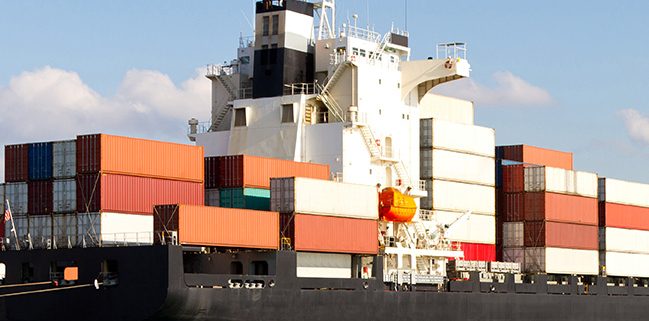Regulatory Changes Brokers Cant Ignore
National Carrier Hiring Standard
The National Carrier Hiring Standard seeks to limit the liability of brokers and shippers when selecting a carrier. It states that before giving a load to a carrier, the broker or shipper must simply confirm that he carrier has operating authority from FMCSA, has the minimum insurance required, and has not been assigned an “unsatisfactory” CSA safety rating.
TIA has been pushing to get the hiring standard included in the Federal Aviation Administration (FAA) Reauthorization funding bill. The standard was included when the House of Representatives approved the bill, but it hit a roadblock in the Senate and never made it into the final bill. Burroughs said TIA will try to get the standard included in an future bill, such as an infrastructure funding package that may come up in the coming year. More info: Senate considering National Carrier Hiring Standard.
Register early for the 2019 DAT User Conference in Austin, TX and save $300.
CARB Regulations
Recently, two large asset-based 3PLs outside of California were assessed large financial penalties by the California Air Resources Board (CARB). Burroughs said CARB is now defining a California-based broker as a business that arranges transportation within California no matter where their business is domiciled. In response, TIA has updated its Model Broker-Carrier Contract and added a sample certification addendum to have motor carriers sign when they do not have an official CARB certificate on file. This and other model contracts are available for download from the Members Only section of TIA's website.
Sanitary Transportation of Food
This regulation went into effect this past April for small companies (brokerages with less than 500 employees) and a year earlier for large companies. It changed the definition of a "shipper" to include brokers and 3PLs, who ultimately could be held responsible for adulterated food. Burroughs said that shippers may look to the broker to take responsibility for temperature control and sanitary conditions, but that brokers should push back as much as possible and let the carrier handle the transportation operations when transporting food. More info: New Food Safety Rules: Who Will Feel the Pain?
Tax Reform
One governmental action that freight brokers have benefited from this year is the tax reform package that decreased the corporate tax rate from 35% to 21%. Businesses can take advantage of expense write-offs, including the full cost of new equipment, interest paid on loans, and charitable contributions.
URS to replace MC numbers
The Unified Registration System uses a company's USDOT number as its sole unique identifier for motor carriers, brokers, freight forwarders, etc., and discontinues the use of docket numbers such as MC, MX, and FF Numbers. The URS system is currently being used to register NEW carriers and brokers, but the changeover for EXISTING companies has been delayed indefinitely because of issues with the software program.
For more info visit: www.atcexpressbrokers.com
Freight Company Export Regulations
Freight Company export regulations
An overview of important regulations to consider when exporting. This information is part of "A Basic Guide to Exporting" provided by the U.S. Commercial Service to assist U.S. companies with exporting.

2018 Trucking, Freight Regulations
ELD Mandate
Any truck driver who’s required to track Hours of Service must do so with an electronic logging device (ELD) by December 16. Some shippers may require the carriers they work with to make the change earlier than that. (According to the FMCSA site: "Drivers of vehicles manufactured before 2000" are exempt from the mandate, though there's some confusion as to whether the exemption will be based on manufacture date or model year.)
More info
Hours of Service
Some portions of the HOS rules that were introduced in July 2013 were lifted again in 2014. The 2013 rules required 34-hour restarts to include two stretches between 1:00 AM and 5:00 AM, and the restart could be used only once per seven days. Those provisions were suspended, and a study by the FMCSA and Virginia Tech University on the rules' safety impact will determine whether or not that suspension is permanent. According to Overdrive Online, the report is "under departmental review."
More info
MC Numbers
The Unified Registration System (URS) was scheduled to be fully implemented by January 14, but the FMCSA announced that it’s been delayed. Again. We should learn the new date sometime soon. Once it's in place, the URS will replace the FMCSA’s old registration system for operating authority, and going forward, all carriers, brokers, and freight forwarders will be identified solely by a DOT number instead of an MC, FF, or MX number.
More info
Speed Limiters
The public comment period closed last month on a proposed rule that would require speed limiters on vehicles that weigh more than 26,000 lbs. The FMCSA hasn't suggested what the top speed on the limiters would be. A large segment of those who participated in the public comment period argued against speed limiters, although some large carriers supported a 65 mph limit.
More info
Overtime Pay
New overtime rules were set to take effect last month, but a lawsuit filed in October by 21 states put the rules on hold. Current law says that any salaried employee making more than $23,660 per year is exempt from overtime pay. The new rules, if implemented, would push that limit up to $47,476 per year. It also would allow for 10% of commission or bonus pay to be counted toward the employee’s total compensation, but only if paid at least quarterly. Most drivers are paid by the mile, but dispatchers, salespeople, and other salaried employees could be affected.
More info